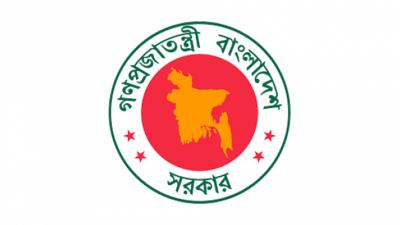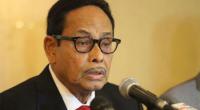 The Cabinet Division has received 347 proposals and recommendations sent by the deputy commissioners (DC) of 64 districts for placing at the annual DCs’ Conference, people familiar with the matter said.
The Cabinet Division has received 347 proposals and recommendations sent by the deputy commissioners (DC) of 64 districts for placing at the annual DCs’ Conference, people familiar with the matter said.
With the election due late this year, the government will sit with the DCs on Tuesday (Jul 24) to give them instructions.
The DCs may get instructions on keeping field administrations dynamic, speeding up the government’s development activities and policy implementation at grass-root level.
Like every year, the Cabinet Division has organised the programme with Prime Minister Sheikh Hasina expecting to inaugurate the three-day event.
The DCs, however, have put forward their proposals for the government’s consideration. It includes a wide range of issues, including scrapping the requirement of intelligence agencies’ report over promoting public servants.
They also sought decisions on quick disposal of drug cases, fine on late renewal of trade license, policy on tuition fees at private sector educational institutions.
A Cabinet Division source said, “A proposal has been sent on the government decision on mandatory intelligences’ report for promoting a government official.”
“The DCs want the government scraps it,” the official said.
Another proposal on the quick disposal of cases filed under the Narcotics Control Act has been made.
The DCs recommended for setting up of drug testing laboratories at the divisional cities as existing tests of evidences require more time, delaying disposal of cases.
They asked the government to name ‘oral morphine’ as drug substances due to its widespread use in the border areas proposing for a separate court on drug.
The DCs have proposed for introducing the late fee on the renewal of trade license.
Due to no specific policy, non-government educational institutions across Bangladesh charges tuition fees at their wills.
As the government pays the salary of teachers and staff under its MPO-scheme, the DCs have proposed a policy on the matter.
A proposal has advocated for ending posting on deputations for physicians at the state-run hospital at Upazilas and districts as it severely affects the treatment services.
 National
National
41412 hour(s) 49 minute(s) ago ;
Morning 07:43 ; Tuesday ; Jul 08, 2025
What are the DCs demands to government?
Send
Shafiqul Islam
Published : 23:49, Jul 23, 2018 | Updated : 20:13, Jul 25, 2018
Published : 23:49, Jul 23, 2018 | Updated : 20:13, Jul 25, 2018
0 ...0 ...
/hb/
Topics: Top StoriesExclusive
- KOICA donates medical supplies to BSMMU
- 5 more flights to take back British nationals to London
- Covid19: Rajarbagh, Mohammadpur worst affected
- Momen joins UN solidarity song over COVID-19 combat
- Covid-19: OIC to hold special meeting
- WFP begins food distribution in Cox’s Bazar
- WFP begins food distribution in Cox’s Bazar
- 290 return home to Australia
- Third charter flight for US citizens to return home
- Dhaka proposes to postpone D8 Summit
Unauthorized use of news, image, information, etc published by Bangla Tribune is punishable by copyright law. Appropriate legal steps will be taken by the management against any person or body that infringes those laws.
Bangla Tribune is one of the most revered online newspapers in Bangladesh, due to its reputation of neutral coverage and incisive analysis.
F R Tower, 8/C Panthapath, Shukrabad, Dhaka-1207 | Phone: 58151324; 58151326, Fax: 58151329 | Mob: 01730794527, 01730794528


